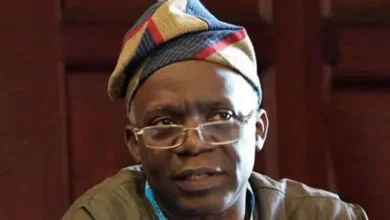Newsbreak: FG scraps JSS, SSS, brings new education system

By Samuel Ogunsona
Henceforth, there will no longer be Junior Secodary School, (JSS) and Senior Secondary Schools, (SSS).
The Federal Government on Thursday announced the scrapping of the two stop-over education system now replaced with a compulsory 12-year basic education model.
This development is set to redefine the country’s education landscape.
The Minister of Education, Dr. Tunji Alausa, revealed the government’s decision on Thursday.
He emphasized the need for a more comprehensive and inclusive education system.
He said “We are committed to providing quality education that prepares our children for the challenges of the 21st century.”
The Minister said the new 12-year basic education model will ensure that our students receive a well-rounded education, empowering them to succeed in an increasingly competitive world.
Under the new system, students will undergo a continuous 12-year education, from primary to senior secondary school, without the previous JSS and SSS divisions.
This reform aims to eliminate the barriers that currently prevent many students from completing their secondary education.
“The current system has been plagued by high dropout rates, particularly during the transition from JSS to SSS,” Dr. Alausa explained.
“By scrapping these divisions, we can ensure that our students receive uninterrupted education, reducing the likelihood of dropout and improving overall academic performance.”
The Government has assured that the new system will be implemented in phases, with adequate provisions made for the training of teachers, upgrading of infrastructure, and development of new curriculum.
“This is a bold step towards revolutionizing our education sector,” said Dr. Alausa.
“We are confident that the 12-year compulsory basic education model will have a transformative impact on our nation’s human capital development, driving growth, innovation, and prosperity for generations to come.”
The move has been hailed by education stakeholders, who see it as a major step forward in addressing the country’s education challenges.
“This is a welcome development, and we commend the government for taking this bold step,” said a spokesperson for the Nigerian Union of Teachers.
“We are committed to working with the government to ensure a smooth transition and successful implementation of the new system.”





